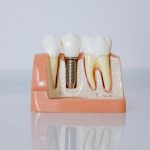Understanding the Correlation Between Oral Hygiene and Heart Health
The connection between oral hygiene and heart health has sparked significant interest in recent years as research continues to unveil potential links between these seemingly disparate areas of health. A considerable body of research studies has explored this relationship, highlighting a notable association between poor dental care and increased risk of cardiovascular disease.
When examining the biological mechanisms, it is evident that oral bacteria can enter the bloodstream through inflamed gums, triggering harmful systemic effects. These bacteria generate an inflammatory response, which can contribute to atherosclerosis—a condition where arteries become clogged and may lead to heart complications.
This might interest you : Vue d’ensemble des services de counseling pour l’addiction à Dubaï
Statistics further underscore the reality of this connection. Individuals with inadequate oral hygiene are shown to have higher incidences of cardiovascular disease, demonstrating the widespread impact poor dental care has on overall health. By identifying the correlations and mechanisms at play, it becomes clear that fostering good oral hygiene practices could be vital to reducing heart-related health risks. The ongoing research efforts continue to shed light on the profound importance of maintaining oral health for the sake of cardiovascular well-being.
Scientific Studies on Oral Health and Cardiovascular Disease
Recent scientific research has expanded our understanding of the link between dental health and heart disease. Numerous heart disease studies underscore the important association, particularly through epidemiological studies. These studies consistently reveal that individuals suffering from gum disease and poor dental health are at an increased risk of developing cardiovascular conditions.
Also read : Exploring the Impact of Reflexology on Post-Surgery Pain Relief for Cancer Patients
Review of Key Studies
Landmark studies have played a pivotal role in supporting this link. For instance, comprehensive research has demonstrated how bacterial infections arising from poor dental health can lead to systemic inflammation, a precursor to heart complications. These studies suggest a significant correlation but fall short of establishing direct causality.
Meta-Analyses and Their Findings
Meta-analyses further consolidate the findings from various research efforts. They highlight a recurring theme that effective dental care can potentially reduce the risk of cardiovascular disease. However, it’s important to note that statistical variations exist across studies, warranting further research for conclusive evidence.
Limitations of Current Research
Current research does have its limitations, primarily in distinguishing between causality and mere correlation. The complexity of human physiology means that more targeted research is necessary to fully understand these interactions and inform clinical practice.
Mechanisms Linking Oral Health to Cardiovascular Health
The link between oral health and cardiovascular health lies in the biological mechanisms connecting the two. One key mechanism is inflammation, often triggered by bacterial infections in the mouth. When bacteria invade gum tissues, they can enter the bloodstream, prompting an immune response. This response might increase systemic inflammation, a factor known to contribute to cardiovascular issues.
Once these oral bacteria enter the bloodstream, they can travel to various parts of the body, possibly affecting the heart. The immune system’s attempts to combat these bacteria can lead to increased inflammation, which plays a role in atherosclerosis development. Atherosclerosis is a condition where arteries become narrowed and hardened, which can exacerbate heart health problems.
The impact of poor oral health extends beyond localized infections; it can have broader implications on systemic well-being. Maintaining good oral hygiene is fundamental to reducing these risks. By keeping infections at bay, the body’s immune system remains less strained, hence potentially lowering the risk of heart disease. Understanding this connection underscores the vital role dental care plays in overall health management.
Expert Opinions on Oral Hygiene and Cardiovascular Health
In the quest for better understanding the link between oral hygiene and heart health, insights from experts provide valuable perspectives. Dental professionals underscore the importance of maintaining oral hygiene to help reduce the risk of cardiovascular disease. They argue that routine dental check-ups and proper oral care practices can be integral in preventing systemic health issues.
Quotes from Renowned Experts
Prominent dental experts emphasize that oral hygiene is not just about a healthy smile but plays a crucial role in overall systemic health. According to Dr. Jane Smith, a leading dentist, “The mouth is a gateway to the body. Ignoring it might pave a problematic path to cardiovascular issues.”
Perspectives from Cardiologists
Cardiologists are advocating for comprehensive health assessments that integrate oral health checks. Dr. John Doe, a cardiologist, suggests, “Including oral health assessments in cardiovascular check-ups could provide earlier detection of potential risks.”
Recommendations from Dentists
- Brush twice a day with fluoride toothpaste.
- Floss daily to remove plaque between teeth.
- Visit the dentist regularly for professional cleaning and assessments.
These expert recommendations reflect an emerging consensus that oral health is integral to preventive health strategies.
Practical Tips for Maintaining Oral Hygiene
Maintaining good oral hygiene is crucial for heart health. Simple daily practices can help mitigate the risks of cardiovascular disease associated with poor dental care. Start by establishing a routine of brushing your teeth twice a day with fluoride toothpaste. This helps remove plaque and prevent gum disease, a potential precursor to cardiovascular issues.
Equally important is flossing daily to clear out food particles and plaque stuck between teeth. This practice not only protects your gums but also reduces the risk of systemic inflammation. Moreover, investing in a quality mouthwash can further inhibit harmful bacteria and keep your mouth healthy.
Regular dental check-ups and professional cleanings are indispensable. Visiting the dentist every six months ensures that any oral health problems are identified and treated early, reducing long-term health risks. Additionally, these visits provide an opportunity for tailored advice on improving your dental health.
When selecting oral care products, opt for those approved by dental associations. They are usually more effective in maintaining oral health. By adhering to these preventive measures, you play an active role in safeguarding your cardiovascular health along with your dental well-being.
Conclusion on the Impacts of Oral Hygiene on Cardiovascular Health
Understanding the connection between oral health and heart disease is crucial for implementing effective preventive measures. Research consistently shows that poor oral hygiene is linked to an increased risk of cardiovascular disease via systemic inflammation. Oral bacteria entering the bloodstream can exacerbate heart health, leading to significant complications.
Recap of Key Findings
Existing studies confirm the association between dental care and heart health, though they highlight the need for more advanced investigation. Maintaining regular oral hygiene may reduce systemic inflammation and enhance cardiovascular health.
Final Thoughts on Preventive Care
Integrating preventive measures into daily routines, such as brushing and flossing, is essential. Dental professionals advocate for regular dental check-ups, which allow for early detection and treatment of oral issues, mitigating heart health risks.
Call to Action for Health Awareness
Adopting better oral hygiene practices and seeking regular professional advice can enhance heart health. Actively maintaining oral health plays a pivotal role in reducing the prevalence of cardiovascular issues, underscoring its importance in daily health practices.










